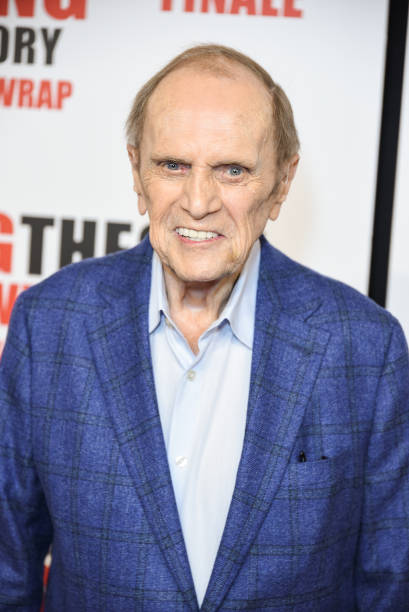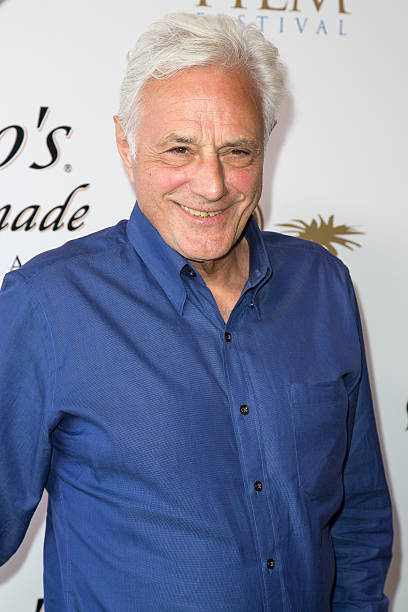Bob Newhart, the genteel yet sharply satirical comedian whose TV series “The Bob Newhart Show” and “Newhart” were monumental hits during the 1970s and ’80s, passed away on Thursday in Los Angeles at the age of 94.
Newhart’s publicist, Jerry Digney, confirmed that he died following a series of brief illnesses.
Newhart also gained recognition among younger audiences as Papa Elf in the 2003 Christmas classic “Elf,” for his guest appearances on “The Big Bang Theory” (where he won his only Emmy as a guest star in 2013), and more recently in three episodes of “Young Sheldon.”
“The Big Bang Theory” creator Chuck Lorre reflected on Newhart’s passing, stating, “For years, I begged Bob to appear on one of my shows. He always said no. But then he fell in love with ‘The Big Bang Theory’ and said yes – with two provisions. One: his character had to have an arc that spanned several episodes. And two: he wanted to win an Emmy. We delivered on both. I got to work with a comedy legend. A master of the craft, and a kind and gentle man. I even got to call him a friend. How lucky am I?”
Before his TV success, Newhart’s comedy albums were wildly popular for their at-the-time new approach to observational humor. He dominated TV for nearly two decades, first with “The Bob Newhart Show” as a bewildered Chicago psychologist, and then with “Newhart” as an equally perplexed New England innkeeper. He garnered Emmy nominations for actor in a comedy three years running from 1985-87. Both shows were major successes for CBS, and they ran for a combined total of 16 years between 1972 and 1990.
Surprisingly, his first Emmy win didn’t come until 2013, when he won for a guest acting spot on “The Big Bang Theory.” He appeared in six episodes of the hit sitcom.
Starting in 1960, when his comedy monologue recordings became bestsellers, Newhart ushered in a new style of comedy that did not have its roots in the Borscht Belt or vaudeville but was instead based on observation and psychology. His work paved the way for later, wackier comics like Steve Martin. With his deadpan, stammering delivery and his subject matter, Newhart was quietly subversive, striking a chord both in urban areas and beyond.
His debut album, “The Button-Down Mind of Bob Newhart,” was the first comedy album ever to hit the top of the Billboard charts, saving the then-struggling Warner Bros. Records in the process. His first two albums simultaneously held the Billboard Nos. 1 and 2 spots, a feat unmatched until Guns N’ Roses did it with a pair of discs in 1991.
George Robert Newhart was born in Oak Park, Illinois, and came to entertainment via a circuitous route. Studying at Loyola University in Chicago, he majored in commerce and graduated in 1952 before entering the U.S. Army. After ending his military service two years later, he enrolled in Loyola’s law school but flunked out in 1956. He then worked a variety of odd jobs while performing in an Oak Park stock company.
Newhart and a friend, Ed Gallagher, recorded some of their conversations and tried to sell them to radio stations. The tapes did not sell, but Newhart’s monologues were noticed by Chicago DJ Dan Sorkin, who gave Newhart his first radio job, which lasted only five weeks.
However, Sorkin introduced him to the president of Warner Bros. Records, James Conkling, who secured him bookings in Houston nightclub the Tidelands and recorded his performances. The live album “The Button-Down Mind of Bob Newhart” was an immediate bestseller in 1960, followed by “The Button Down Mind Strikes Back” and “Behind the Button-Down Mind.”
In addition to impressive sales, “The Button-Down Mind of Bob Newhart” earned Newhart three Grammys in 1961: Best New Artist, Comedy Performance (Spoken Word), and Album of the Year – the first comedy record to receive this honor.
In a 2007 NPR story on the success of Newhart’s first album, Conan O’Brien described what Newhart did as “premise” comedy — laying out a scenario at length; no individual line is that funny, but the overall effect is. Jerry Seinfeld is among the comedians who use a similar approach.
“There was a change that was going on, of which I was part of,” Newhart told Guy MacPherson of the Comedy Couch blog in 2006. “There was Mike and Elaine (Nichols & May), Shelley Berman, Mort Sahl, myself, Johnny Winters, and Lenny Bruce. We weren’t doing ‘take my wife, please’ jokes. We weren’t doing ‘jokes’; we were doing little vignettes. So there was a change in comedy. I mean, we didn’t all get together and have a cabal and say let’s change comedy; it was just our way of finding what was funny in the world.”
Newhart’s immensely popular recordings led to guest appearances on “The Jack Paar Show” and “The Gary Moore Show.” For a time, Newhart traveled the country doing one-night gigs, culminating at Carnegie Hall in 1961. That sold-out engagement led to his movie debut in Paramount’s comedy “Hell Is for Heroes.”
Newhart worked in movies (“Hot Millions,” “On a Clear Day You Can See Forever,” “Catch-22,” “Cold Turkey”), guested regularly on television, and appeared in Las Vegas for several years before his hit sitcoms.
He tried series television again in 1992-93 with the less successful “Bob” on CBS, and again with CBS’ “George and Leo,” also starring Judd Hirsch, in 1997-98.
In later years, Newhart received an Emmy nomination for playing a librarian losing his eyesight on “ER” in 2003 and another nomination for the 2008 TV movie “The Curse of the Judas Chalice.”
Newhart hosted episodes of “Saturday Night Live” in 1980 and 1995; voiced himself on a 1996 episode of “The Simpsons”; appeared on 17 episodes of “The Tonight Show With Johnny Carson” between 1966 and 1992 (guest-hosting three times) and five on the Leno version between 1998 and 2009; appeared as himself in a 2002 episode of “Everybody Loves Raymond”; and was part of an elaborate gag at the 2006 Emmy Awards, hosted by Conan O’Brien, before co-presenting the award for comedy series.
Newhart also did occasional big-screen work in his later years, appearing in “In & Out” (1997), “Legally Blonde 2: Red, White & Blonde” (2003), and “Elf” (2003).
The comic was still doing standup in his 70s, performing about 30 nights a year as of 2006. He found to his delight that the material from his 1960s hadn’t aged. Newhart did his first comedy special, “Off the Record,” for Showtime in 1995.
“The audience was largely 35 to 40 years old,” Newhart told MacPherson of the Comedy Couch blog. “I reprised some of the original first and second album material and it worked in exactly the same way it worked the first time. I guess the material is as relevant today… The Abe Lincoln routine is probably more relevant today than it was 40-some years ago.”
His book “I Shouldn’t Even Be Doing This,” mixing reminiscences with bits of comedy, was published in 2006.
Newhart was inducted into the Academy of Television Arts & Sciences Hall of Fame in 1993, and the comic won the second Mark Twain Prize for Humor, presented by the Kennedy Center, in 2002. In 2007 “The Button-Down Mind of Bob Newhart” was chosen as one of 25 entries into the National Recording Registry at the Library of Congress.
His wife, Ginny, passed away last year. He is survived by his children, Robert Jr., Timothy, Courtney, and Jennifer, and 10 grandchildren.




